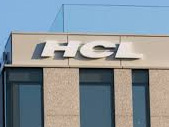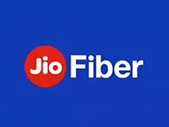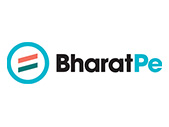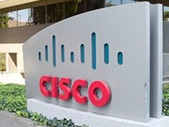|
|
Qualcomm Says it’s Ready to Support Jio-Google Budget Smartphone Plans
 Qualcomm, the world’s top supplier of mobile phone chips, is likely to play a key role in supporting the Reliance Jio-Google combine to launch the much-awaited low-cost Android smartphone in India even as the country’s telecom market leader targets the 300 million-odd feature phone users to upgrade to smart devices. Qualcomm, the world’s top supplier of mobile phone chips, is likely to play a key role in supporting the Reliance Jio-Google combine to launch the much-awaited low-cost Android smartphone in India even as the country’s telecom market leader targets the 300 million-odd feature phone users to upgrade to smart devices.
“Qualcomm played a critical role in massification of Jio’s 4G VoLTE feature phone, and having had a partnership with Jio, I think we will continue that legacy of collaborating and supporting them in bringing new devices and offerings, across price tiers that they would wish to drive,” Rajen Vagadia, president, Qualcomm India, told ET.
He said any decision on Qualcomm supporting the budget Android smartphone or its 400-series Snapdragon chipsets being in play there would be “confidential to Jio and Google”. Analysts expect Mukesh Ambani-led Jio to quickly unveil the low-cost smartphone, especially after it reported its lowest-ever net 4G user adds (at 5.2 million) in the December quarter. The budget smartphone launch, they say, is essential for Jio to retain and upgrade its JioPhone users as the telco could face more churn in the March quarter when 8-10 million JioPhone contracts are scheduled to expire.
Qualcomm’s Vagadia also expects calendar 2021 to be a pivotal year in driving massification of 5G devices in India, though the advent of 5G smartphones priced in the ₹10,000-15,000 range would hinge on how the handset original equipment makers (OEMs) position themselves in the 5G market. Pricing of a 400-series entry-level 5G phone, he said, would start higher than a 400 series 4G product, given the host of high-end features such devices will pack, but they would drop down faster.
“Qualcomm lives by the 5G for-all mantra, and we’ve seen 5G devices launched at lower pricepoints of ₹20,000 this year, and given the history of how prices of 4G phones came down in India, I see an acceleration in the massification of 5G devices, given that 4G phones running on both our 600 and 400 series chipsets are already priced at sub-₹10,000 and around,” Vagadia said.
The top Qualcomm India executive said a basic 4G smartphone with “a 5.5-to-6-inch screen and memory configuration of (1+8 GB) can already be sourced, at an FOB of anywhere in $40-50 range (₹2,800-3,500 approx)”.
Vagadia is gung ho on the production-linked incentive (PLI) scheme for the handset sector, saying it “offers a great opportunity for local brands to make a comeback in the smartphones space” since the government is incentivising local smartphone manufacturing.
Qualcomm also expects India to become a major exports hub, riding on the PLI scheme, driving not just manufacturing of phones, but also components.
Vagadia, separately, made a strong pitch for early availability of a mix of 5G spectrum bands in India, including millimetre waves and midband, saying that would help local startups design latest low-latency 5G solutions that can be used for deploying use cases like drones, for last mile reach during disasters or for delivering sophisticated medical healthcare remotely.
“Startups globally have access to 5G networks running on millimeter waves, so Indian startups need the same to design futuristic solutions that are globally valuable.” (Source: Economic Times)
|
Netflix among best performing FAANG stocks last week as NASDAQ surged to record highs
 So far in 2021, the NASDAQ index has jumped more than 11%, however, only Alphabet, the parent company of Google, has managed to outperform that. So far in 2021, the NASDAQ index has jumped more than 11%, however, only Alphabet, the parent company of Google, has managed to outperform that.
Wall Street moved higher during the previous week and closed at record highs as global stock markets continued to rally. NASDAQ gained 1.73%, S&P 500 added 1.23%, and Dow Jones moved up 1%. However, the big-five technology stocks underperformed the benchmarks. Facebook, Apple, Amazon, Netflix and Google, collectively called the FAANG stocks ended the week mixed. So far in 2021, the NASDAQ index has jumped more than 11%, however, only Alphabet, the parent company of Google, has managed to outperform that.
Facebook’s share price gained 0.9% during the week gone by to end at $270.5. This week, Facebook will see the Australian parliament take up legislation that will force the social media giant to pay publishers and broadcasters to circulate their content on its platform. The move could dent the purse of Facebook’s Mark Zuckerberg.
It was were iPhone manufacturer, Apple went sliding down. Apple’s stock price fell 1.02% to close the week at $135.37 apiece. On the bright side, reports last week claimed that Apple’s partner Wistron will be restarting its India factory soon. The manufacturing unit, based in Bengaluru, was closed in December when a workers’ protest went violent. In other news, Reuters reported that Apple’s new iPhone 12 mini was not turning out be a big hit among customers as sales of the smaller version of flagship device were just 5% of overall sales.
Jeff Bezos’ Amazon fell 2.22% during the last five trading sessions. The future might be bright for Amazon but Future is what’s troubling the tech giant. Delhi High Court reversed the earlier order and allowed Kishore Biyani’s Future Group to go ahead with its deal with Mukesh Ambani’s Reliance Industries, something Amazon has been challenging. Now, Amazon has knocked on the doors of the Supreme Court of India in hope of a breather.
Streaming behemoth Netflix was the best performing among the FAANG stocks during the week. Shares of Netflix surged almost 1% to close at $556.52 apiece. Internet giant Google, although it has outperformed NASDAQ and other FAANG stocks so far in 2021, last week it managed to gain only 0.30%. The company has agreed to $76 million to French new publishers. This week, the company could be gearing up to walk the same path in Australia as lawmakers down under discuss the company’s circulation of the content of other publishers. (Source: Financial Express)
|
HCL Tech Plans $500m Overseas Bond Issue
 Issue likely to be launched in March and may help the software major acquire assets abroad
Issue likely to be launched in March and may help the software major acquire assets abroad
HCL Technologies plans to raise about $500 million in an overseas bond sale, which would be a first — not only for the software company but also for the exports-oriented outsourcing industry, where India is a leader. Financing an offshore acquisition may be one of the motives of the proposed issue.
These bonds could mature in 10 years, offering yields of about 3%, three people with knowledge of the matter told ET. Coupon rates and other terms have not yet been finalised. The bond issue may be in the first two weeks of March.
At ₹2.61 lakh crore, HCL Tech ranks just behind Tata Consultancy Services and Infosys on the market capitalisation leader board for Indian technology companies. “The company is raising new money for the first time as it would attempt to acquire new assets,” said one of the persons cited above.
Cash Reserves of $2.2 B
HCL Tech is in talks with at least half a dozen investment bankers, said the people cited above. They include global lenders such as Standard Chartered Bank, Citi, Deutsche Bank and JP Morgan.
The investment banks could not be contacted immediately for comments. HCL did not reply to ET’s mailed queries on the proposed bond issue.
More than two years ago, HCL acquired IBM’s software products, raising short-term debts of $200 million during the acquisition. It is said to be looking at similar acquisition opportunities overseas, industry executives said. The company has cash reserves of $2.2 billion.
“If a technology company is raising overseas bonds, the purpose is not limited to lowering the cost of borrowing. Rather, it might be on account of other business needs,” said Mukul Garg, technology analyst at brokerage Motilal Oswal.
Money garnered overseas — and deployed there — would also help cover potential currency risks. “It is likely that the company will use the money for acquiring a business offshore, whenever that happens,” said a senior executive familiar with the matter.
BENIGN YIELDS
Globally, the cost of funds is low. The US Treasury, a key gauge for pricing foreign debt securities, has remained benign, prompting many local companies to tap into the ample liquidity available in global money hubs.
US Treasury yields, at 1.16%, remain significantly lower than the near-term high of 3.22% seen in October 2018.
About a year ago, international ratings company S&P Global assigned a generic ‘A-’ longterm issuer credit rating to HCL Tech, with a stable outlook. The grade is one notch higher than New Delhi’s sovereign rank. The company has not yet obtained a rating specific to this issuance.
“The rating on HCL Tech reflects the company’s broad IT software and service offerings, high repeat business from an established clientele and global service delivery capabilities,” S&P had said in the report. (Source: Economic Times)
|
TCS, Wipro See their India Revenue Growing as Local Cos Take to Tech
 TCS logs 18% growth in India business in Q3, while Wipro saw 14% rise in India state-run enterprises biz. Tata Consultancy Services and Wipro have witnessed strong growth in business from India, helped by higher spending by local clients on technology as they emerge stronger after the disruption caused by the pandemic.
TCS logs 18% growth in India business in Q3, while Wipro saw 14% rise in India state-run enterprises biz. Tata Consultancy Services and Wipro have witnessed strong growth in business from India, helped by higher spending by local clients on technology as they emerge stronger after the disruption caused by the pandemic.
While TCS posted nearly 18% growth in India business during the fiscal third quarter, Wipro saw a near 14% expansion in its India State Run Enterprises (ISRE) business. Wipro spun out the ISRE segment in October 2018 for businesses from government-run organisations.
“India enjoyed a second quarter of sustained growth momentum, but coming off a very strict first quarter. Last quarter there was a bounce back from the private sector and this quarter we have also seen increased activity on our assessment and transactional businesses,” TCS chief executive Rajesh Gopinathan said during the quarterly results conference.
The assessment business refers to TCS iON, which is a strategic unit of the company focused on providing academic institutions, government departments and firms from various sectors with the infrastructure for their recruitment/admissions processes and skilling initiatives.
The transactional business refers to engagements where TCS is paid on a per-transaction basis, such as the partnership with the Ministry of External Affairs to issue passports to Indian citizens through the nationwide network of Passport Seva Kendras run by the company.
Both are India-specific businesses at TCS.
Gopinathan, however, said the volatility in growth was because of the low base from the domestic market. “It is not that we are back to very high economic activity or we are not seeing runaway recovery right now,” he added.
At Wipro, the focus of the ISRE segment is to complete some of the longpending system integration projects in India, chief financial officer Jatin Dalal said. “As you can see, we have steadily improved the execution rhythm in that segment (and) have improved profitability (wherein) we had losses earlier in this quarter,” he added.
Wipro reported ISRE segment revenue of ₹240 crore for the past quarter.
Not every Indian IT services company is “equally” invested in the domestic market, analysts said.
“For example, while companies like TCS, HCL Tech is focused, not all its peers are. The India market offers these companies low margin and at the same time opportunity for consulting business is very small here,” said Sanchit Vir Gogia, chief executive of Greyhound Research. (Source: Economic Times)
|
IIT grads, ex-Google execs ready to roll out ad-free search engine Neeva
 With a 45-person team in the US, the plan is to roll out Neeva in “four-five months”, first in the home market of the US and then English-speaking regions like Western Europe, Australia and India. With a 45-person team in the US, the plan is to roll out Neeva in “four-five months”, first in the home market of the US and then English-speaking regions like Western Europe, Australia and India.
“At scale, an ad-supported product serves the company that shows you ads, it does not serve you.” With this thought, Sridhar Ramaswamy and Vivek Raghunathan, IIT alumni and former Google executives, are ready to roll out Neeva, an ad-free, private search product, which, by the middle of this year, hopes to offer a customer-paid and customer-first alternative, at a time of growing concerns over the control wielded by tech megaliths.
“The ad model has been great for bringing search to everyone on the planet, but over time, there is more and more pressure to show more ads and not really what the user wants. Our thesis is that we can create a much better search product, focusing solely on what a customer needs,” says Ramaswamy, the CEO of Neeva, speaking on a video call from his California home. This is a domain the 54-year-old knows well, having been the senior vice-president of ads and commerce at Google, and also run its travel, shopping and search infrastructure teams.
Raghunathan studied at IIT Mumbai and was earlier vice-president of Monetisation at YouTube.
“So it’s actually a broad set of experiences. Similarly, Vivek was the first tech lead of what is now called the Google Assistant. So we’ve actually worked on search on both sides,” Ramaswamy says, a graduate from IIT Chennai. This is why they felt “confident enough” that they could build the technology relatively inexpensively, he adds.
With a 45-person team in the US, the plan is to roll out Neeva in “four-five months”, first in the home market of the US and then English-speaking regions like Western Europe, Australia and India. “Fortunately we have a great team of engineers, designers and product managers, and very good backers,” says Ramaswamy. Neeva has raised $37.5 million so far, with equal investments from Greylock, Sequoia Capital and Ramaswamy himself.
The product will be different from what people are used to, offering a single window for search and queries into personal data on services like Dropbox and email accounts, Ramaswamy says. “We have to rethink the core technology. And at some level, things like how you crawl the web, how you index the basics are similar,” he says. Like Google, Neeva will also use AI and machine learning to create the secret sauce — rankings for searches.
On apprehensions that may arise regarding personal data, Ramaswamy says, “We guarantee that the product and company are designed so that personal data is indexed to serve your results, and for nothing else… We are creating a company that, from the beginning, is customer first and customer only. We are very adamant about making sure that this is the one and only revenue source.”
A blog on Neeva also reiterates its commitment to be ad-free, guarantees that “your data will never be sold in any form whatsoever”, and promises that search history will be deleted by default after 90 days. (Google’s default is 18 months.)
Having spent 16 years at Google, Ramaswamy says he has come to believe that it is “just not healthy” to have very large tech platforms control so much. “There are good people there, that’s not the issue. If you need to make more money, the temptation to show one more ad is just very strong,” he says, adding that what Neeva provides is a choice. “And giving this choice creates a richer Internet.”
He is aware of the challenges of offering a paid product, and the need to ensure that it is “excellent”. However, Ramaswamy says, for him that is the motivation. He cites the example of services like Spotify and Dropbox, which succeeded in segments where there was no dearth of free options, and hopes that Neeva may also force their competitors to cut back on ads. “… You can’t now say, I’m going to show a page full of ads… Users are going to go for a paid option, because too much is too much.”
Ramswamy adds, “We feel confident that a certain segment of the population will see value in a superior product. And especially in the current environment of worry, about how large and how influential the tech companies are, we feel we can get enough people who say ‘I just want a simple alternative, a service that I use, that I pay’. And that’s it, there’s no more worry about data, there’s no more worry about what else is going on.” (Source: Indian Express)
|
Jio in advanced talks with OEMs to launch IoT services for homes, businesses
 Reliance Jio said that it is in advanced talks and trials with original equipment makers (OEMs) to launch its Internet of Things (IoT) services in the country. Its pan-India IoT network is already operational which was launched in partnership with South Korean major Samsung.
Reliance Jio said that it is in advanced talks and trials with original equipment makers (OEMs) to launch its Internet of Things (IoT) services in the country. Its pan-India IoT network is already operational which was launched in partnership with South Korean major Samsung.
Reliance Jio said that it is in advanced talks and trials with original equipment makers (OEMs) to launch its Internet of Things (IoT) services in the country. Its pan-India IoT network based on narrowband IoT technology is already operational which was launched in partnership with South Korean major Samsung.
The telco said that it has developed a comprehensive solution with device, diagnostics, connectivity, platform and support.
Mukesh Ambani, Chairman of Reliance Industries had previously said that Jio was aiming to connect at least a billion connected IoTdevices to its Internet of Things (IoT) platform, unlocking Rs 20,000 crore annual revenue opportunity per year for the company,
Jio claimed that it has successfully conducted pilots with various DISCOMs. It is integrating its IoT solution with top meter OEMs and has tied up system integrators for the rollout.
In addition to the electricity segment, the Mukesh Ambani-led telco is also looking to tap the smart city space with its smart lighting solutions. It is currently conducting product pilot in progress. "...solution integrated with major lighting OEMs."
Jio said that its Connected Diesel Generator solution has already been rolled out with pilots underway with DG OEMs and Facility Management companies.
Jio, in its analyst presentation, revealed that its pilot is in progress for smart solution for a major hospitality chain.
To further sweeten its JioFiber broadband offering, Jio is planning to launch a complete suite of IoT devices included smart speakers, smart bulbs and smart switches.
It will soon launch smart monitoring solution comprising indoor and outdoor camera for home and offices.
Jio is also launching its secure streaming and Cloud storage in India.
The telco is betting big on home automation under its "Jio smart living" suite which includes safety, security and convenience sensors. The solution is targeted for real estate developers. "...multiple project handovers scheduled through CY2021," it revealed in its presentation.
Jio previously claimed that it is the only telco in India to have the capability and network footprint for a nationwide launch of NB-IoT services. It had launched a pilot in Mumbai in 2018.
Vodafone Idea Ltd. (VIL) is also preparing to launch commercial NB-IoT services in India, having rolled out commercial proofs of concept for the services in Kochi, Jaipur, Bengaluru and Chennai.
Bharti Airtel is also working on its NB-IoT network in India.
NB-IoT is a new technology standard, designed to broaden the future of IoT connectivity, providing significantly improved and deeper network coverage for communication between machines while lowering power consumption by device. (Source: ETTelecom)
|
Digital payment startup BharatPe raises Rs 139 crore debt from Alteria Capital, ICICI Bank
 Founded by Ashneer Grover and Shashvat Nakrani in 2018, BharatPe offers merchants a single interface for all UPI apps like Paytm, PhonePe, Google Pay, BHIM, Mobikwik, Freecharge and others. It also facilitates loan facility for its merchant partners. Founded by Ashneer Grover and Shashvat Nakrani in 2018, BharatPe offers merchants a single interface for all UPI apps like Paytm, PhonePe, Google Pay, BHIM, Mobikwik, Freecharge and others. It also facilitates loan facility for its merchant partners.
Fintech company BharatPe on Sunday said it has raised Rs 139 crore (about USD 20 million) in debt from venture debt firm Alteria Capital and ICICI Bank that will be used to strengthen its lending business and provide credit to merchants.
Founded by Ashneer Grover and Shashvat Nakrani in 2018, BharatPe offers merchants a single interface for all UPI apps like Paytm, PhonePe, Google Pay, BHIM, Mobikwik, Freecharge and others. It also facilitates loan facility for its merchant partners.
Speaking to PTI, BharatPe co-founder and CEO Ashneer Grover said Rs 90 crore in debt came from Alteria Capital, while the remaining Rs 49 crore was from ICICI Bank.
“We have raised funds from ICICI Bank at a competitive interest rate of less than 9 per cent. We are aggressively building our lending vertical and our loan book is currently at Rs 400 crore.
“With this infusion, we can double down on our efforts and we expect the loan book to grow to Rs 700-750 crore by the end of March 2021,” he added.
Grover said BharatPe had set a target of disbursing Rs 1,000 crore of loans in 2020-21, of which Rs 800 crore has already been disbursed.
“The latest tranche of debt raised will help further build the lending business and enable credit for millions of businesses, across the length and breadth of India,” Grover said.
Last week, BharatPe raised Rs 60 crore in debt from Innoven Capital. With this, BharatPe has raised a total of Rs 199 crore (USD 28 million) in debt till date. It had said it plans to raise over Rs 5,000 crore in debt funding in the next two years to build its lending business.
“We have committed ourselves to provide USD 700 million of loans to small merchants and kirana store owners by March 2023 and are hoping to onboard more institutional debt partners in the near future,” he said.
Grover added that the company aims to become a digital bank that is the one-stop destination for merchants for all kinds of financial services and this tranche of funds will get things rolling.
Merchants are the top priority for the company and it is committed to solving the credit problem for them, he said.
“The institutional debt raised will help catapult our lending business. We intend to raise close to USD 700 million of debt capital over the next two years… By March 2023, our aim is to be present in 300 cities and have the lending product available in 200 cities,” he added.
Grover said the company has already disbursed loans to more than one lakh merchants and aims to scale this up by 8-10 times and enable credit for a million kirana store owners in 2021.
Currently, serving over 50 lakh merchants across 65 cities, the company has grown business 30 times in 2019 and processed over six crore UPI transactions a month (annualised transaction processed value of over USD 7 billion).
BharatPe has raised close to USD 171 million in equity and debt till date. The company’s investors include Beenext, Sequoia, SteadView Capital, Ribbit Capital, Coatue Management LLC, Insight Partners, and Amplo. (Source: Financial Express)
|
Cisco reaches new deal to acquire Acacia for $4.5 billion
 Cisco initially offered to acquire Acacia for $70 a share, or $2.6 billion in July 2019.
Cisco initially offered to acquire Acacia for $70 a share, or $2.6 billion in July 2019.
Networking giant Cisco has agreed to acquire Acacia for $115 per share in cash, or approximately $4.5 billion.
Acacia is a component supplier and maker of high-speed optical interconnect technology for networking systems.
Cisco initially offered to acquire Acacia for $70 a share, or $2.6 billion in July 2019.
"I am delighted that Cisco and Acacia have decided to come together in this mutual deal," said Chuck Robbins, chairman and CEO, Cisco.
"We look forward to welcoming Raj and the Acacia team to Cisco to offer our customers world-class coherent optical solutions to power the Internet for the future," Robbins said in a statement on Thursday.
Upon completion of the acquisition, CEO Raj Shanmugaraj and Acacia employees will join Cisco's optics business.
Cisco and Acacia expect to complete the acquisition by the end of the first calendar quarter of 2021.
Last week, Acacia announced to terminate its merger agreement with Cisco after the company had failed to meet a set of closing conditions such as "obtaining necessary regulatory approvals within the timeframe contemplated by the merger agreement."
Cisco said it is committed to supporting Acacia's existing and new customers around the world that require industry-leading coherent optics, digital signal processing/photonic integrated circuit modules and transceivers for use in networking products and data centres.
"We maintain our strong conviction in the strategic benefits of joining the Cisco family and believe it will enable us to better support our existing customers, while reaching an expanded footprint of new customers globally," said Raj Shanmugaraj, president and CEO of Acacia.
Cisco said the acquisition will benefit its existing enterprise network portfolio. (Source: ETTelecom)
|
Samsung announces January 14 Galaxy Unpacked event; Galaxy S21 series incoming
 As is usually the case, the Galaxy S21 series should arrive in India by the end of January or early February. Samsung will launch the Galaxy S21 series on January 14. Also possibly tagging along will be the company’s first canal-type—closed—TWS earbuds with ‘true’
As is usually the case, the Galaxy S21 series should arrive in India by the end of January or early February. Samsung will launch the Galaxy S21 series on January 14. Also possibly tagging along will be the company’s first canal-type—closed—TWS earbuds with ‘true’
ANC or active noise cancelation, Galaxy Buds Pro. Potentially everything about the Galaxy S21 series and Galaxy Buds Pro—including their January 14 launch date—has been leaked extensively over the last few months. Be that as it may, it’s always nice when things go official, and given that this will be one of the first high-profile events of the new year, there is still a lot to look forward to.
The Galaxy S21 series is already available for pre-order in the US. As is usually the case, the Galaxy S21 series should arrive in India by the end of January or early February. (Source: Financial Express)
|
Hyderabad-based Yitsol bets big on 5G, Internet of Things
 Five-year-old company is now focused on Industry 4.0 wherein it is looking to provide its solutions to not just telecom and manufacturing but also work with telecom application sectors like edtech Five-year-old company is now focused on Industry 4.0 wherein it is looking to provide its solutions to not just telecom and manufacturing but also work with telecom application sectors like edtech
Even as the Covid-19 pandemic moved sectors to explore digitisation in a big way, technologies like 5G and Internet of Things (IoT) also paved way for industries like telecom and manufacturing to adopt digital route. These sectors need a solutions provider who can help them with device and telecom network management. One such company is Hyderabad-based Yitsol which provide IoT Device Management Solutions, Telecom Network & Resource Management Solutions to clients such as the Indian Army, AT&T, and Food Corporation of India.
The five-year-old company is now focused on Industry 4.0 wherein it is looking to provide its solutions to not just telecom and manufacturing but also work with telecom application sectors like edtech. The company has entered the 5G space and is helping telcos with testing and deployment. Similarly, it is working with manufacturing companies to deploy their IoT solutions in their production unit.
“For the last two to three years, there was a lot of discussion around digital transformation and this was heavily fuelled by pandemic. Now, enterprises have realised that they can work remotely and the second catalyst is 5G which is pushing enterprises to prioritise digitisation. Our major target is mid-size companies who would not go tier-1 solutions and 20 per cent of our focus is on newer technologies with IoT being major area for us,” said Amit Singh, CEO, Yitsol Telecom & IoT Labs.
On their expansion plans, Singh said that the company is planning to hire 10-40 people and is looking to increase its headcount by 50 people in another year. Currently, the company has a headcount of 100 people. In addition, the company is looking at offering its services in the US region as well and is planning to set up satellite offices in different regions. “In terms of clients, we have customers in Europe, Middle East and other regions and are looking at targeting countries like Maldives,” said Singh. (Source: Telangana Today)
|
Vodafone Group says no to infuse new equity in Voda Idea
 Vodafone Group has maintained its stance that it will not invest any fresh equity into Vodafone Idea NSE -3.98 %
Vodafone Group has maintained its stance that it will not invest any fresh equity into Vodafone Idea NSE -3.98 %
“ Our position has not changed. Vodafone Group does not intend to put any new equity into Vodafone Idea,” said the UK headquartered telecom Group in an email statement to ET.
This comes on the back of the Indian telco’s announcement to raise funds of upto Rs 25,000 crore via a mix of debt and equity instruments in one or more tranches, which will be used to pay statutory dues and invest in network operations to take rivals.
Vodafone Group though is expected to infuse around Rs 6,600 crore as per pre-agreed merger terms. The British telco has already put in over Rs 1,800 crore under this arrangement, of a total corpus of Rs8,400 crore.
The telco needs funds to pay its adjusted gross revenue (AGR) of Rs 50,400 crore to the government. It can also look forward to income tax refunds, around Rs1600 crore from VIL's stake sale in the Indus Towers-Bharti Infratel merged entity and the sale of its fibre and data centre, which is estimated to generate $1.5-2.1 billion.
Currently, Vodafone Group holds 44.39% in the telco, with the Aditya Birla Group owing 27.66%. The company is laden with a debt of Rs 1.7 lakh crore, including statutory dues. (Source: Economic Times)
|
Airtel gradually reducing dependency on Huawei 4G; set to replace it with Ericsson
 Bharti Airtel is likely to replace Huawei with Sweden’s Ericsson for 4G network expansion and modernisation in the Rest of Tamil Nadu (RoTN) circle, people familiar with the matter said, as the Sunil Mittal-led telco takes gradual steps towards reducing dependency on the Chinese telecom gear maker.
Bharti Airtel is likely to replace Huawei with Sweden’s Ericsson for 4G network expansion and modernisation in the Rest of Tamil Nadu (RoTN) circle, people familiar with the matter said, as the Sunil Mittal-led telco takes gradual steps towards reducing dependency on the Chinese telecom gear maker.
Bharti Airtel is likely to replace Huawei with Sweden’s Ericsson for 4G network expansion and modernisation in the Rest of Tamil Nadu (RoTN) circle, people familiar with the matter said, as the Sunil Mittal-led telco takes gradual steps towards reducing dependency on the Chinese telecom gear maker.
“Without Rest of Tamil Nadu, Huawei will just have two Airtel circles. Airtel has already stopped giving packet core orders to Huawei for any capacity expansion,” a person said on condition of anonymity. “All such orders have gone to Ericsson.”
Ericsson, which is the second-largest vendor for Airtel, declined to comment. Queries sent to Huawei remained unanswered.
"Airtel has strong relationships with several partners. These partners work across all our domains, radio, core and transport,” an Airtel spokesperson said in a statement to ET.
Huawei had increased its involvement with the Airtel network in 2017 when it got Rajasthan and UP (West) on top of Karnataka and Rest of Tamil Nadu.
But it is now likely to be back to two, with the telecom major, with over 284 million users, in late 2019 having swapped Huawei’s gear with Ericsson’s in the Rajasthan circle. That came at a time when the pressure on Huawei was increasing, mainly from the US, for its alleged proximity to the Chinese government, leading to concerns over possible snooping.
And now, India too has made its security concerns around Huawei clear, especially in the wake of the heightened border tensions with China. New Delhi has already barred state-run carriers from sourcing equipment from Chinese companies Huawei and ZTE, and is believed to have informally nudged private telcos to replace Chinese equipment over time, without disrupting consumer services. Besides the US, even the UK recently banned the purchase of Huawei 5G equipment and said any such gear that’s installed needs to be removed by 2027.
Randeep Sekhon, chief technology officer at Bharti Airtel, previously told ET that alternative suppliers were available if needed. “We will be fully compliant with government orders… To be fair, there are enough suppliers in the world and new suppliers are coming in. India should be fine with it.”
The comments had come soon after the US tightened restrictions on the Chinese vendor, which meant that Taiwanese Semiconductor Manufacturing Co (TSMC), the world’s largest contract semiconductor maker, had to stop taking new orders from Huawei. This is expected to affect Huawei’s supplies globally, including to Indian vendors. (Source:ETTelecom)
|
Anritsu Extended 116-Gbit/s PAM4 Error Detector Functions Take World Lead in Evaluations for 400-GbE and 800-GbE Transmissions
 With the release of the FEC symbol capture function and Bathtub test capability for Anritsu's 116-Gbit/s PAM4 Error Detector (ED) MU196040B installed in its flagship Signal Quality Analyzer-R MP1900A series, Anritsu (President Hirokazu Hamada) is pleased to announce strengthened support for development of devices for 400-GbE*1 and 800-GbE*2 transmissions. These functions are supported by downloading and installing the latest control software from the MP1900A website - https://www.anritsu.com/test-measurement/products/mp1900a.
With the release of the FEC symbol capture function and Bathtub test capability for Anritsu's 116-Gbit/s PAM4 Error Detector (ED) MU196040B installed in its flagship Signal Quality Analyzer-R MP1900A series, Anritsu (President Hirokazu Hamada) is pleased to announce strengthened support for development of devices for 400-GbE*1 and 800-GbE*2 transmissions. These functions are supported by downloading and installing the latest control software from the MP1900A website - https://www.anritsu.com/test-measurement/products/mp1900a.
[Background]
The spread of commercial next-generation 5G mobile communications services enables faster sending and receiving of large video and data files. To support larger and faster transmissions, data centers, which are key infrastructure in 5G mobile networks, are also investigating speed upgrades from the current 100 GbE*3 to 400 GbE and future 800 GbE/1.6 TbE standards.
PAM4*4 used in 400 GbE is easily affected by noise and transmission path losses, making it difficult to achieve the previous level of error-free transmissions and requiring use of FEC (Forward Error Correction*5) to correct generated errors and maintain transmission quality.
Consequently, there is increasing need for quantitative measurement of jitter-related signal quality, such as jitter tolerance*6 measurement for evaluating the performance of high-speed devices and transceivers for 400-GbE.
[Outline of Developed Product]
To meet this need and support 400G network evolution, Anritsu has added two new features to its MP1900A: the FEC symbol capture function to evaluate FEC-based network elements, and the PAM4 Bathtub*7 test capability.
In today’s high-speed networks, some low-probability errors are expected in data traffic and these errors are corrected using FEC. The new MP1900A ED functions analyze the types of errors to evaluate whether or not the errors can be corrected by FEC and starts capturing data streams only when the burst errors exceed the FEC uncorrectable threshold. From the captured data, a user can determine and troubleshoot what kind of data steam caused the uncorrectable burst errors.
Since the impact of jitter becomes severe as the data-stream baud rate is increased to achieve a higher traffic capacity, Anritsu has added the PAM4 Bathtub test capability to evaluate and quantify the jitter phase margin.
The modular MP1900A running embedded Windows 10 has good expandability. As well as supporting 400-GbE and 800-GbE PAM4, it is a market-leading bit error rate tester (BERT) for various high-speed interfaces, including PCI Express Gen5 and USB4, using a full line of modules and application software. In addition to more accurate BER measurements, the MP1900A helps shorten development times for high-speed devices and transceivers.
[About MP1900A PAM4 BERT Solution]
https://www.anritsu.com/en-IN/test-measurement/solutions/hs-pam4-ber/index
[About leaflet on FEC symbol capture function]
https://www.anritsu.com/en-IN/test-measurement/support/downloads/brochures-datasheets-and-catalogs/dwl20151
[Target Markets and Applications]
■ Target Markets: 400-GbE and 800-GbE communications equipment and device makers
■ Applications: Bit error rate evaluation of 400-GbE and 800-GbE communications equipment and devices
[Terms]
*1, *2, *3 400 GbE, 800 GbE, 100 GbE
Communications standards studied and defined by IEEE
*4 PAM4
PAM (Pulse Amplitude Modulation) is a transmission method controlled by changing the voltage amplitude (pulse height). PAM4 transfers 2 bits of data using 4 levels in one time slot.
*5 Forward Error Correction
One receiver-side method of correcting errors in transmitted data generated by transmission path
*6 Jitter Tolerance
Ability to receive signals including jitter in input signal at receiver side
*7 Bathtub
Method of analyzing jitter by separating jitter components included in input signal from changing properties of error rate on time axis (Source: Convergence Plus)
|
Tiktok Considers London And Other Locations For Headquarters To Distance Itself From Its Chinese Ownership
 TikTok has been in discussions with the UK government over the past few months to locate its headquarters in London, a source familiar with the matter said, as part of a strategy to distance itself from its Chinese ownership.
TikTok has been in discussions with the UK government over the past few months to locate its headquarters in London, a source familiar with the matter said, as part of a strategy to distance itself from its Chinese ownership.
London is among one of several locations the company is considering, but no decisions have been made, the source said.
It was not immediately clear what other locations are under consideration. But it has hired aggressively in California this year, including poaching Kevin Mayer, a former Walt Disney Co executive, to be TikTok’s chief executive. He is based in the United States.
TikTok is facing heavy scrutiny in Washington over suspicions China could force the company to turn over user data. TikTok is owned by China-based ByteDance.
The source said the company is largely focused on its issues in the United States over the last few weeks, but has not ruled out London as a potential location for its new headquarters. TikTok is expected to "significantly" increase the size of its workforce in London and other key locations outside of China over the next several years, the source said.
The Sunday Times reported https://bit.ly/2ZHlI1Z Tiktok has broken off talks with the UK government to open a global headquarters in Britain.
A source said Tiktok was still in discussions with Britain's government.
TikTok declined to comment. (Source: Economic Times)
|
Qualcomm To Invest ₹730 Crore In Jio Platforms
 Qualcomm Ventures, the investment arm of chipmaker Qualcomm Incorporated, has committed to invest up to ₹730 crore in Jio Platforms for 0.15 per cent stake. Qualcomm is the thirteenth investor in Jio Platforms which has raised a total of over ₹1.18 lakh crore.
Qualcomm Ventures, the investment arm of chipmaker Qualcomm Incorporated, has committed to invest up to ₹730 crore in Jio Platforms for 0.15 per cent stake. Qualcomm is the thirteenth investor in Jio Platforms which has raised a total of over ₹1.18 lakh crore.
The latest investment will deepen the ties between Qualcomm and Jio Platforms, to support Jio Platforms on its journey to rollout advanced 5G infrastructure and services for Indian customers.
Mukesh Ambani, Chairman and Managing Director of Reliance Industries, said, “As a world leader in wireless technologies, Qualcomm offers deep technology knowhow and insights that will help us deliver on our 5G vision and the digital transformation of India for both people and enterprises.”
Steve Mollenkopf, CEO of Qualcomm Incorporated, said, “With our shared goal of extending the benefits of digital connectivity to everyone and everything, we anticipate Jio Platforms will deliver a new set of services and experiences to Indian consumers.”
The transaction is subject to customary conditions precedent. Morgan Stanley was the financial advisor to Reliance Industries and AZB & Partners and Davis Polk & Wardwell were legal counsels. Trilegal was legal counsel for Qualcomm Ventures. (Source: The Hindu Businessline)
|
|
|
|
|
 Qualcomm, the world’s top supplier of mobile phone chips, is likely to play a key role in supporting the Reliance Jio-Google combine to launch the much-awaited low-cost Android smartphone in India even as the country’s telecom market leader targets the 300 million-odd feature phone users to upgrade to smart devices.
Qualcomm, the world’s top supplier of mobile phone chips, is likely to play a key role in supporting the Reliance Jio-Google combine to launch the much-awaited low-cost Android smartphone in India even as the country’s telecom market leader targets the 300 million-odd feature phone users to upgrade to smart devices. 
 So far in 2021, the NASDAQ index has jumped more than 11%, however, only Alphabet, the parent company of Google, has managed to outperform that.
So far in 2021, the NASDAQ index has jumped more than 11%, however, only Alphabet, the parent company of Google, has managed to outperform that.  Issue likely to be launched in March and may help the software major acquire assets abroad
Issue likely to be launched in March and may help the software major acquire assets abroad
 TCS logs 18% growth in India business in Q3, while Wipro saw 14% rise in India state-run enterprises biz. Tata Consultancy Services and Wipro have witnessed strong growth in business from India, helped by higher spending by local clients on technology as they emerge stronger after the disruption caused by the pandemic.
TCS logs 18% growth in India business in Q3, while Wipro saw 14% rise in India state-run enterprises biz. Tata Consultancy Services and Wipro have witnessed strong growth in business from India, helped by higher spending by local clients on technology as they emerge stronger after the disruption caused by the pandemic.
 With a 45-person team in the US, the plan is to roll out Neeva in “four-five months”, first in the home market of the US and then English-speaking regions like Western Europe, Australia and India.
With a 45-person team in the US, the plan is to roll out Neeva in “four-five months”, first in the home market of the US and then English-speaking regions like Western Europe, Australia and India.  Reliance Jio said that it is in advanced talks and trials with original equipment makers (OEMs) to launch its Internet of Things (IoT) services in the country. Its pan-India IoT network is already operational which was launched in partnership with South Korean major Samsung.
Reliance Jio said that it is in advanced talks and trials with original equipment makers (OEMs) to launch its Internet of Things (IoT) services in the country. Its pan-India IoT network is already operational which was launched in partnership with South Korean major Samsung. Founded by Ashneer Grover and Shashvat Nakrani in 2018, BharatPe offers merchants a single interface for all UPI apps like Paytm, PhonePe, Google Pay, BHIM, Mobikwik, Freecharge and others. It also facilitates loan facility for its merchant partners.
Founded by Ashneer Grover and Shashvat Nakrani in 2018, BharatPe offers merchants a single interface for all UPI apps like Paytm, PhonePe, Google Pay, BHIM, Mobikwik, Freecharge and others. It also facilitates loan facility for its merchant partners.  Cisco initially offered to acquire Acacia for $70 a share, or $2.6 billion in July 2019.
Cisco initially offered to acquire Acacia for $70 a share, or $2.6 billion in July 2019. As is usually the case, the Galaxy S21 series should arrive in India by the end of January or early February. Samsung will launch the Galaxy S21 series on January 14. Also possibly tagging along will be the company’s first canal-type—closed—TWS earbuds with ‘true’
As is usually the case, the Galaxy S21 series should arrive in India by the end of January or early February. Samsung will launch the Galaxy S21 series on January 14. Also possibly tagging along will be the company’s first canal-type—closed—TWS earbuds with ‘true’ Five-year-old company is now focused on Industry 4.0 wherein it is looking to provide its solutions to not just telecom and manufacturing but also work with telecom application sectors like edtech
Five-year-old company is now focused on Industry 4.0 wherein it is looking to provide its solutions to not just telecom and manufacturing but also work with telecom application sectors like edtech
 Vodafone Group has maintained its stance that it will not invest any fresh equity into Vodafone Idea NSE -3.98 %
Vodafone Group has maintained its stance that it will not invest any fresh equity into Vodafone Idea NSE -3.98 %
 Bharti Airtel is likely to replace Huawei with Sweden’s Ericsson for 4G network expansion and modernisation in the Rest of Tamil Nadu (RoTN) circle, people familiar with the matter said, as the Sunil Mittal-led telco takes gradual steps towards reducing dependency on the Chinese telecom gear maker.
Bharti Airtel is likely to replace Huawei with Sweden’s Ericsson for 4G network expansion and modernisation in the Rest of Tamil Nadu (RoTN) circle, people familiar with the matter said, as the Sunil Mittal-led telco takes gradual steps towards reducing dependency on the Chinese telecom gear maker.
 With the release of the FEC symbol capture function and Bathtub test capability for Anritsu's 116-Gbit/s PAM4 Error Detector (ED) MU196040B installed in its flagship Signal Quality Analyzer-R MP1900A series, Anritsu (President Hirokazu Hamada) is pleased to announce strengthened support for development of devices for 400-GbE*1 and 800-GbE*2 transmissions. These functions are supported by downloading and installing the latest control software from the MP1900A website - https://www.anritsu.com/test-measurement/products/mp1900a.
With the release of the FEC symbol capture function and Bathtub test capability for Anritsu's 116-Gbit/s PAM4 Error Detector (ED) MU196040B installed in its flagship Signal Quality Analyzer-R MP1900A series, Anritsu (President Hirokazu Hamada) is pleased to announce strengthened support for development of devices for 400-GbE*1 and 800-GbE*2 transmissions. These functions are supported by downloading and installing the latest control software from the MP1900A website - https://www.anritsu.com/test-measurement/products/mp1900a.
 TikTok has been in discussions with the UK government over the past few months to locate its headquarters in London, a source familiar with the matter said, as part of a strategy to distance itself from its Chinese ownership.
TikTok has been in discussions with the UK government over the past few months to locate its headquarters in London, a source familiar with the matter said, as part of a strategy to distance itself from its Chinese ownership.
 Qualcomm Ventures, the investment arm of chipmaker Qualcomm Incorporated, has committed to invest up to ₹730 crore in Jio Platforms for 0.15 per cent stake. Qualcomm is the thirteenth investor in Jio Platforms which has raised a total of over ₹1.18 lakh crore.
Qualcomm Ventures, the investment arm of chipmaker Qualcomm Incorporated, has committed to invest up to ₹730 crore in Jio Platforms for 0.15 per cent stake. Qualcomm is the thirteenth investor in Jio Platforms which has raised a total of over ₹1.18 lakh crore.






